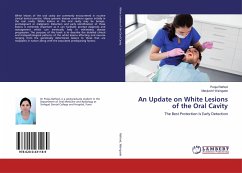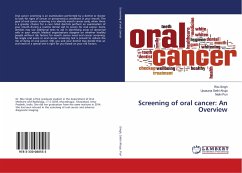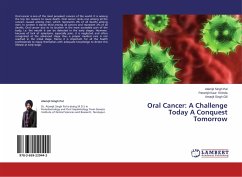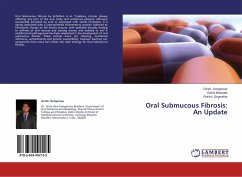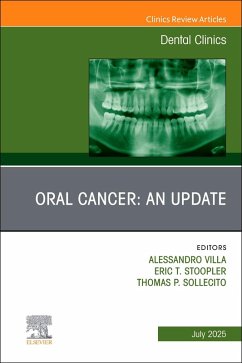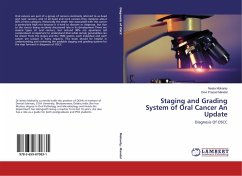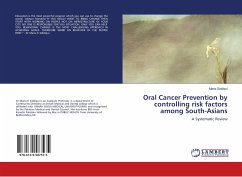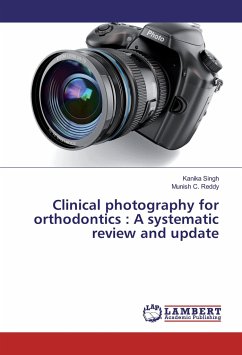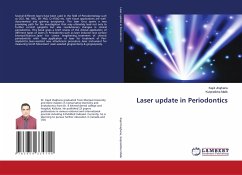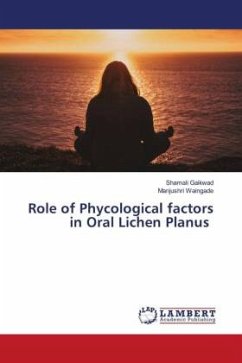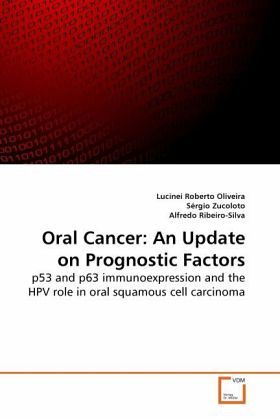
Oral Cancer: An Update on Prognostic Factors
p53 and p63 immunoexpression and the HPV role in oral squamous cell carcinoma
Versandkostenfrei!
Versandfertig in 6-10 Tagen
32,99 €
inkl. MwSt.

PAYBACK Punkte
16 °P sammeln!
Brazil is among the countries with the largest indexes of oral squamous cell carcinoma (OSCC). The role of p53 and p63 in the OSCC prognosis is still debatable. The involvement of the human papilomavirus (HPV) in CEO is still another factor no elucidated. Our study aimed to evaluate the patients with OSCC diagnosed in the Teaching Hospital of the Ribeirao Preto Medical School of the Sao Paulo University, as well as to investigate the relationship between the p53 and p63 proteins immunoexpression and the HPV presence with some relevant clinicopathological parameters to the tumor prognostic. The...
Brazil is among the countries with the largest indexes of oral squamous cell carcinoma (OSCC). The role of p53 and p63 in the OSCC prognosis is still debatable. The involvement of the human papilomavirus (HPV) in CEO is still another factor no elucidated. Our study aimed to evaluate the patients with OSCC diagnosed in the Teaching Hospital of the Ribeirao Preto Medical School of the Sao Paulo University, as well as to investigate the relationship between the p53 and p63 proteins immunoexpression and the HPV presence with some relevant clinicopathological parameters to the tumor prognostic. The clinical data were obtained from the medical files of 424 patients. One hundred twenty-six patients were selected for the survival study, 106 for the immunohistochemical investigation, 45 for the IHQ analysis with matched samples (MS), and 87 for the polymerase chain reaction test of HPV and multivariate analysis. Significant differences related to the OSCC prognostic were found in multivariate analysis for age, tumoral site and p53. A HPV association to oral carcinogenesis was verified in the non-smoker patients.



